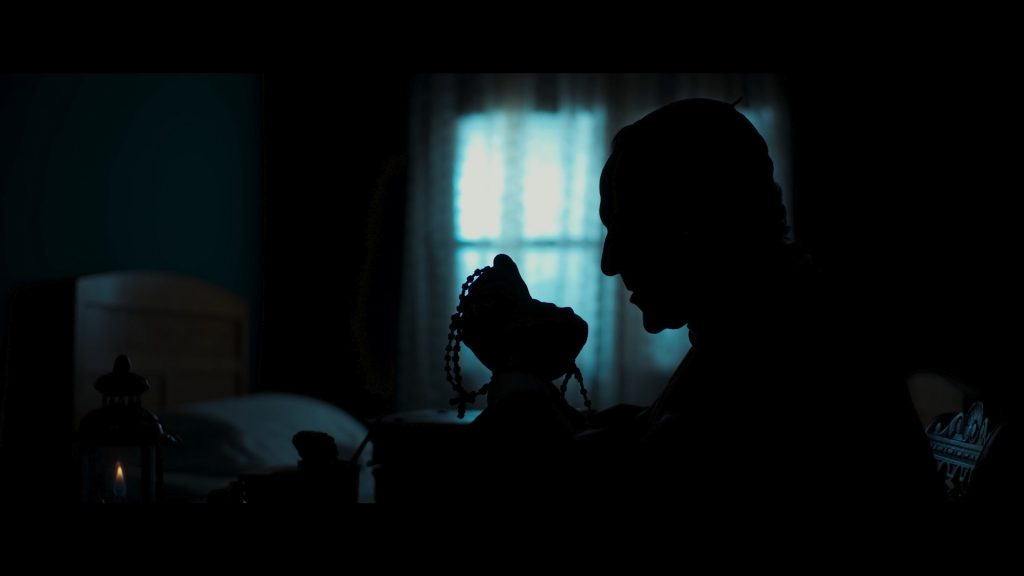Like many hagiographies, “Slaves & Kings” is a story told through a series of foils.
The film, which is set for a two-day U.S. theatrical release on Aug. 22 and 23, tells the life of St. Anthony Mary Claret, who founded the Missionary Sons of the Immaculate Heart (better known as the Claretians) and was the confessor to Queen Isabella II of Spain. At times, it’s a life that can almost appear cliché.
As a young man, he is shown having pious devotions to the Virgin Mary, a stark contrast from his business partner’s gambling vice. As a young priest, he is seen rejecting Mass stipends while one of his fledgling followers rejects the Claretians, upset at such an act of poverty. As he moves up in the Church hierarchy, he rejects his fellow bishops’ attempts to steer his office for political or material gain.
Then, as the title suggests, there is the contrast between living among slaves or members of the royalty. St. Claret’s life, we see, suggests the former is preferable to the later.
But St. Claret’s story is much more complicated than these simple series of contrasts, and “Slaves & Kings” seeks a deeper look into the life of a saint whose legacy was, in the words of the filmmakers, “adulterated” after his death. The result is a serious reflection on how we should view Christian success.
“During the production process, we were thinking about the superhero movie,” said director Pablo Moreno, originally from Salamanca, Spain, near where much of the film was shot. “Why do people consume so many superhero movies? Because people need ‘references,’ they need figures of hope, people who fight for justice.”
A significant portion of the film is set in Cuba, where St. Claret served as a missionary archbishop — and where he is at his most heroic. The film depicts his stand for truth and justice, and against the American way of slavery that permeated the island against the laws of Spain.
But “Slaves & Kings” is far from the latest installment of a cinematic universe. Whereas we expect superheroes to reach the credits in total victory, St. Claret seems to leave Cuba a failure, run out by the slavers and a status quo that rejects the gospel of freedom and equality.
But throughout the film, a practical optimism is demonstrated by the numerous conversions effected at the hands of St. Claret. Optimistic because it demonstrates the efficacy of Christ’s message and mercy, and practical because it depicts the worldly reality that not all who hear the Gospel will take it to heart.
St. Claret did not convert the island of Cuba. And only 60 years following his death, his native country was thrown into a civil war marked by the kind of anti-clericalism that St. Claret suffered from.
Instead, we see St. Claret as he welcomes a Black slave into the Church; as he leads a wealthy woman to recognize the human dignity; and even as he guides Queen Isabella through sin, scandal, and excommunication. He grows congregations and forms priests. And though not all are brought to communion by St. Claret’s actions, all are given the opportunity to repent.
These were not trivial successes. No, St. Claret did not cause systemic change or a social revolution. Rather, these are the successes of a missionary who doesn’t consider himself a messiah, but rather a voice in the wilderness at best.

“Slaves & Kings” is a hero movie for Christians, one that reminds us to find joy in every soul even when the powers of this world seem to conspire against us. St. Claret saw his role as that of a missionary, not a politician, and while his ministry involved providing for the material needs of the poor, the persecuted, and the enslaved, his primary role is the salvation of souls.
Interestingly, much of the film is based on the work of Azorín, the pseudonym of a 20th-century novelist and intellectual.
Without Azorín, St. Claret’s true story may have never been known. When the archbishop followed Queen Isabella into exile, he left a vacuum in Spain for his enemies to spread disinformation. His biographies were altered to include stories of infidelity to priestly celibacy, and his prolific writings were edited to be filled with errors and political radicalism.
For decades, this disinformation campaign succeeded through repetition in the streets and by intellectual elites — including Azorín himself, who only began to right the record after coming across original copies of St. Claret’s life and writings.
“We found his narrative, and found it very interesting,” Moreno said. “He discovered a lot of things.”
Now, the Spanish production company behind “Slaves & Kings,” Bosco Films, hopes it will be part of a cultural revival of a Catholic film industry. In April, Bosco organized a one-day release of “Alive,” a documentary about the Eucharist that screened in some 750 theaters around the U.S. on April 25. It was the seventh-most watched in the U.S. that day, no small feat for an upstart team of Catholic filmmakers.
That success, according to Bosco founder Lucia González-Barandiarán, has resulted in approximately 1,000 theaters around the country to screen “Slaves & Kings” this month. It will screen in English on Monday, Aug. 22, and in Spanish on Tuesday, Aug. 23.
González-Barandiarán says both films aim to accomplish what she calls the “Three Es”: elevate, educate, and entertain.
“After a while, you may not remember everything that was said in the movie,” she said. “But you remember the sensation it caused in you. That’s what keeps the movie alive in you. That’s the kind of cinema we want to bring.”
“We want to keep telling these kinds of stories, and we ask for help,” she added. “So we need small drops, small ambassadors to go see this movie.”
For screening times and more information about “Slaves & Kings,” visit fathomevents.com/events/slaves-kings.
Editor-in-Chief Pablo Kay also contributed to this article.

